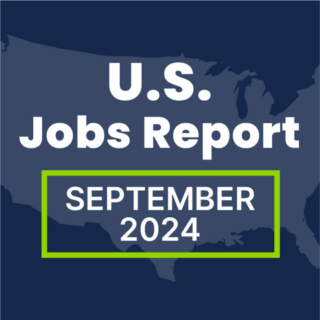Jose Carbia is an effective communicator. That label can mean a lot of things, but in his role as vice president of talent acquisition at Change Healthcare, it means leading a team that spends a lot of time actually talking to candidates. It also means that good news and bad news is delivered quickly, by phone – not through email – and with real recognition of and respect for the time, work and emotional investment that job candidates put into their job search.
Jose is also a transformative leader. In fact, he has more than 25 years of experience in talent acquisition, 21 of which he spent leading and transforming recruiting functions within Fortune 500 companies. Now, at Change Healthcare, he leads a team of 48 and is responsible for more than 3,000 full-time hires and 2,000 flexible, seasonal hires every year. Jose’s latest project has been improving the candidate experience, with a focus on candidate communication, which we spoke with him about from his office in Atlanta.
Where does your passion for the candidate experience come from?
Throughout my 25 years in recruitment, I have volunteered to help job-seekers gain employment. I’ve held speaking engagements where I teach job-seekers how to effectively navigate their reemployment process, and I hear from job-seekers all of the time about the frustrations they experience when they apply to or interview for a job.
There’s nothing more frustrating than going through an interview with an employer and meeting with the recruiter or the hiring manager only to never hear back. We’ve all been through the process. We get excited about an opportunity and share the news with our spouses, friends or family. We tell them about the interview. Then, every day that goes by without hearing from an employer, it becomes torture. Candidates give employers about two or three days to hear back. At that point, friends and family start asking questions and, after a week goes by, the candidate is embarrassed. Then, they blame the employer and see the experience as a reflection of their culture and work environment.
What role does communication play in the candidate experience?
Once a candidate has a conversation with an employer, the communication channel has been opened and it needs to continue frequently throughout the process. Even if there are no updates, candidates should receive some type of communication. When candidates aren’t selected, there are automated processes that can send emails. But, if a candidate has interviewed with us, they deserve a call thanking them for their time and letting them know the final decision.
We need to treat every candidate like a customer. In the end, they already are – or they could be – a future customer. Proper communication is critical to our brand and our image.
What do you do at Change Healthcare to ensure effective communication with candidates?
We conduct a one-questions NPS – net promoter score – survey that we send to candidates who have directly engaged with us through conversation or who have been eliminated from the selection process. The candidates provide a rating and a comment and we review every comment – both positive and negative. We evaluate this feedback twice monthly and look for opportunities for improvement across the enterprise and individually.
We hold each other accountable for the experience and all of our recruiters have visibility into the data as it comes in. It’s also included as part of our recruiters’ individual performance metrics. We have a quarterly ‘most valuable player’ award that goes to the recruiter with the best experience scores, along with other talent acquisition metrics.
We launched this process back in January of 2020 and, at that time, we had a net promoter score of -50. Now, we’re trending at a score of 36, which is considered a great score, but we want it to be even higher.
It sounds like you’ve really made a cultural shift to achieve this success. Is that how you see it?
Absolutely. We’ve been able to break down barriers to create a culture and environment where we are committed to providing a valuable experience. We started with a campaign and it has really taken shape and evolved. We have a hashtag, #LeaveNoCandidatesBehind, and it has really become a part of our regular conversations. We never take our eyes off of it. We see our numbers improve month after month. It has become part of the DNA of our organization.
What role does technology play in the candidate experience for you?
The applicant tracking systems provide the opportunities for automated communications, and it’s important to ensure that those notifications are clear and that they show connection and empathy with the candidate throughout the process. Technology also allows us to better track the talent pool through the selection process and provides a vehicle for a more organized approach to communication. The NPS survey tool helps us capture the information we need to make better business decisions and, now, we’re exploring artificial intelligence technology to help from a screening standpoint.
With this process, I’d imagine you work with a lot of partners, whether those are technology partners or RPO. What role do these partnerships play in your process?
It’s a critical role. When we have partners like PeopleScout, we treat them as an extension of our team. Their leaders are in my leadership meetings. Their talent acquisition team members are included in our overall team meetings. We align our rewards and recognition programs to ensure that we are consistent in our messaging and overall performance. We want the process to be seamless for candidates and hiring managers – whether they are working with an internal employee or a vendor partner.
Our technology partners are equally important. We don’t just plug in a new technology. Our partners are truly engaged in what we’re trying to accomplish, and they work with us through each challenge. We have to continuously monitor everything to ensure that the process is effective and that we’re achieving our overall goals and objectives as an organization.
What advice do you have for other talent leaders who are looking to make similar changes at their organizations?
Data is king. You need to establish ways to measure experience and performance and then use that data to determine where to place your focus. It’s not something you can improve overnight. It’s a constant process of trial and error. Data is necessary to make those critical decisions in the experience and process.
Also, recognize that, while communication is critical, it’s not the only component in a great candidate experience. There’s also your employer brand and your careers site. Candidates today want to know about your diversity and inclusion programs and your culture. Applications need to be quick and easy to fill out. If any of these pieces are missing, candidates will get lost in the process. With the proper mechanisms in place, you can ensure all of these components are working together to create a great candidate experience.



